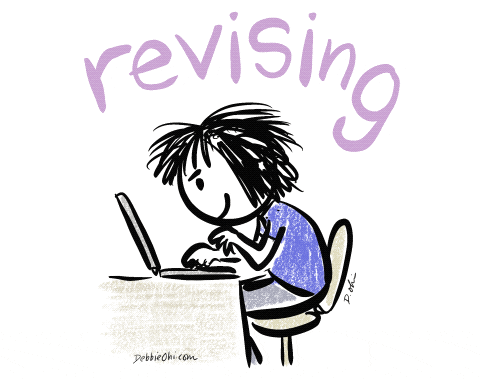Year 13 Mocks: A-Level Prep Guide

Year 13 mocks. Well, to all of you in Year 13 right now, I know the pressure’s starting to creep up on you and that your sanity may already be out the window. It’s easy to feel overwhelmed, but here’s a secret – it’ll all be over faster than you think. So, hang in there and give it your all; the finish line is closer than it appears. You’ve got this!
Now, let’s gear up for your mocks to ensure they’re not just a trial run but a stepping stone to your success!
Importance of Year 13 Mocks
If you’re genuinely committed to giving your A-levels your all, regardless of the final grades you’re aiming for, you need to understand that your mocks really do matter.
Yes, I get that they’re not the be-all and end-all, but they’re a crucial tool that you can use to get more used to exam conditions, assess your weaknesses and strengths, and figure out where you can level up. The last two things are extremely important at this stage.
I don’t care how many times you’ve heard your teachers or parents say it. The fact is, your mocks matter.
Timing and Scheduling
When should you start revising for Year 13 mocks? How many hours per day? Will you have any free time?
The first question is easy to answer. You should have already started.
Like… for real.
It may seem like a heck of a long time to revise for Year 13 mocks, but there will be more content that you’ve forgotten than you initially think- guaranteed. Once you’re midway through this revision period, you’ll realise how much content you actually covered in Year 12, and even just from September-December in Year 13.
You need to give yourself as much time as possible to do past papers and exam questions. This revision isn’t only for your mocks, but it’s also an irreplaceable block of time to prepare for your final exams in summer (in about 28 weeks).

Now, the “how many hours per day” dilemma. Truth bomb – it depends on you. During my Christmas holiday revision grind for mocks, I was putting in serious hours – like 8 to 12 a day. Sounds insane, right? But I knew what I had to do, knowing I was applying for medicine.
Here’s a harsh truth: there will sometimes be people pulling A’s and A*’s with half the hours you put in. In my case, it doesn’t mean I wasn’t working ‘smart’ – trust me, I was. But other people simply got things easier than I did. So, bottom line, constantly check in with your progress for each subject.
Regardless of how much you need to revise, you gotta schedule in breaks. Whether it’s a quick breather or a longer session of doing whatever floats your boat – workout, play a sport, playing the triangle (hey, it counts as an instrument), just do it. Trust me, neglecting breaks might come back to haunt you when exam season kicks in. Success in A-levels doesn’t mean being chained to a desk 24/7. So, break free, conquer the books, and enjoy those well-deserved breaks! And you’ll know if your breaks actually are ‘deserved’ or not – don’t cheat on yourself now. It’s too late for that. You got this!
But… What about Christmas?!
“Do I actually have to revise on CHRISTMAS DAY???”

No. If you’re genuinely putting in the work throughout the year and during your Xmas ‘holidays,’ then you can have a break and enjoy Christmas day like normal. You don’t need to feel guilty for not working on Christmas. Enjoy yourself! It’ll actually give you a good break from work so that once you’re back to it, you feel fresh!
But, as soon as it’s over, make sure you get back on the ball.
Revision Resources
I probably shouldn’t even need to mention this, but just in case: if your textbooks and teachers aren’t quite enough for you (they’re probably not, because A-levels are hard!), it’s time to find some killer online resources.
There’s a goldmine of websites and YouTube channels designed to rescue A-level students in need. Seriously, if you haven’t given YouTube a go, now’s the time.
Click here to check out the main resources that I used. Some of the websites I’ve put on there cover a wide range of subjects- not just sciences!
Feedback and Improvement
Let’s be real. Up until Year 12, most of us shrugged off our teachers’ comments on tests like they were just background noise. And hey, maybe some of you are still in that boat. But, it’s time for a plot twist – starting now, ESPECIALLY for your Year 13 mocks, let’s actually listen to what your teachers have to say.
Think about it for a sec. Your teachers? They know what they’re on about. We all know this, yet, for some reason, we’ve been playing it cool and haven’t been tapping into this gold mine. Well, it’s about time we change that.
Don’t just skim over those comments on your Year 13 mocks; dive deep. Ask your teachers the ‘why’ behind the ‘what’ and get the full scoop. Then, take that wisdom and put it into action. Practise with questions, dive into past papers, and work that feedback into your study routine.
And don’t be shy about going back for more help, even if you think you’ve cracked the code. Teachers are like magical guides; there’s always more they can sprinkle into your learning journey. It’s like having a cheat code to boost your skills.
Trust me, it’s a rare day when your teachers don’t have another nugget of wisdom or a helping hand to offer.

Setting Goals after Year 13 Mocks
Once you’ve done your mocks and had your feedback, it’s time to set some targets: both short-term and long-term.
These targets are like your personal GPS to success, and they’re as unique as you are. Keep it simple, though; we’re not launching a rocket here. Maybe it’s something like:
1) Upping your consistency game. If there’s some topics in a subject- especially the ones that gave you a run for your money in your mocks- that have you doing mental gymnastics 24/7, make it a goal to tackle 3-5 more questions on THAT topic every single day, including all those lovely parts a, b, c and etc.
2) Making a pact with yourself to go to your teachers whenever you need help. Ask them any little question that are on your mind. Honestly, it makes a world of a difference. And even if you don’t need help, ask them for more work on the topics that they’ve seen students struggle with most in the past. They’ll have access to questions which students can’t get: on ExamPro, for example. You’ll thank yourself long-term.
Remember, goals are like a tailored suit – they should should fit you just right. Base them on your current skills and, of course, how your mock exams turn out. Those bad boys are your compass, showing you where you truly stand at this moment in time.
So, set those targets, own them, and let’s turn those mock lessons into a grand saga of triumph in the final exams.
Managing Stress and Well-being
Alright, let’s spill the tea on how to make your Year 13 mocks and the time up until your summer exams feel less like climbing Mount Everest and more like a stroll in the park: take breaks.
Carve out time for things you love, whether it’s sweating it out in the gym or serenading your (self) with a guitar solo, or some mindful drawing.
It doesn’t matter. Whatever it is, it’s a non-negotiable.

Now, I’m not saying you should use your hobbies as a sneaky escape route from your study sessions. That’s a one-way ticket to Procrastinationville. But hear me out – you’ve got more time in a day than you think. Even as the mock and exam season creeps up, you can spare a chunk of your day for something other than work.
I’m living proof. During study leave and the ACTUAL A-level exam circus, I was clocking in at least four workouts a week. Quick ones, mind you, ranging from 30 to 60 minutes. Not exactly an eternity.
If you start now, you’ll be used to it by exam time in 5-6 months.
Picture this: it’s June and exam season is in full swing. Morning exam? Wake up, workout, get ready, strut into school ready to conquer. Afternoon exam? Slay some study dragons in the morning (work), hit a workout, glam up, and swoop into school like a boss.
It did wonders for my focus and energy levels; importantly, while I was writing on my exam papers. Plus, it transformed any pre-exam jitters into a piece of cake. I mean, if I can survive a killer workout, acing an A-level exam should be a breeze, right? That became my genuine mindset and, well, it worked like a charm.
So, break free from the study cave every once in a while. Your mind, your body, and your A-levels will thank you for it. Trust me, it’s a study hack you never knew you needed.
Balancing Subjects
Honestly, there’s zero chance you’ll spend equal amounts of time on each subject. That’d be like trying to juggle spaghetti – messy and counterproductive. You’ve got to feel the vibe of each topic, be real with yourself, and adjust accordingly. Some topics are your academic BFFs, and others are like that distant relative you see once a year – a bit awkward and hard to get along with.
Generally, aim to cover each subject at least once a day. I followed this rule but sometimes I’d only do 2 subjects in a day. But then, I wouldn’t do one of those subjects the day after. I personally found this to allow me to remain as fresh as possible.
As your final exams start, sure, you gotta be a jack of all trades. But for your Year 13 mocks, make sure you cover all of the base content and knowledge as early as possible, and as needed as you go along. Make sure you do as many past papers and topic questions as possible. And put most of your attention on topics you find hardest. On the side, do 5-8 questions a day on topics you find quite easy, or ‘easier’: this will ensure that content stays in your head and when you come to do your mocks, you’ll pick up those marks much quicker!
Doing as many questions as possible is key at this point. It’ll help to uncover knowledge gaps, understanding gaps and exam technique improvements that need to be made.
Assess your own situation – some Year 13 content might be a cakewalk compared to Year 12 content for you. This was the case for me, especially for bio.
Study Groups
Getting ready for Year 13 mocks and those all-important final exams can be overwhelming- no doubt about it. But fear not, my friend, because I’ve got a trick up my sleeve for you – study groups.
Now, hold on, I’m not talking about assembling an army of all your friends; this will not be productive. Quality over quantity is the name of the game. Get even just one study buddy- someone you vibe with and won’t mind spending hours dissecting the mysteries of your chosen subjects with. Trust me; it makes a world of difference.
You and your partner in crime can study the content, quiz each other like you’re prepping for ‘Squid Game: Academic Edition,’ or even take turns being the teacher when one of you doesn’t get something. Challenge each other on EVERYTHING, no matter how obscure, easy or difficult. It’ll help both of you in the long run: TRUST me.
Here’s another idea – tackle the same past paper simultaneously, separately and in exam conditions. Then, mark your papers with the mark scheme and try to understand everything you got wrong and re-do the questions. If you still aren’t sure then come together, compare answers, and tag team everything you got wrong.
It’s not just about working smarter; it’s about injecting a bit of friendly competition into the study routine. Because sometimes, going solo all the time can drain even the most resilient brains.
Maintaining Focus after Year 13 Mocks
After Year 13 mocks, it’s like suddenly, the homework fairies (your teachers) have started to sprinkle an extra load of work on your desk. But hold up, it’s not a conspiracy to see how many past papers you can balance on your head; it’s your teachers gearing you up for victory.
And here’s the bottom line – don’t wave off the lifelines your teachers are tossing your way. They’re not just there to drop knowledge bombs; they’re your backstage pass to success. Trust me, using their support FULLY to your advantage is a non-negotiable. Abuse your rights to their support!
Now, let’s talk about mindset. I won’t sugar-coat it – there will be days when you’d rather hibernate under your blankets than tackle another mountain of past papers and practise questions that don’t seem to end.
The real wizardry? Learning to trudge forward, even when motivation decides to ghost you. Call it discipline, call it whatever you want. Either way, it’s a skill worth honing if you’re aiming to do your best. I don’t care if it’s an A* or a B. To do your best, you need to be disciplined. I’m not saying it’s easy, but it’s worth it.
